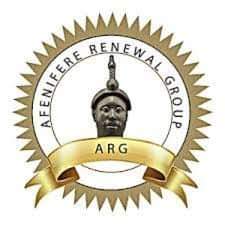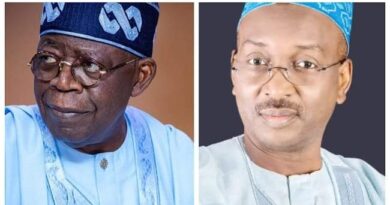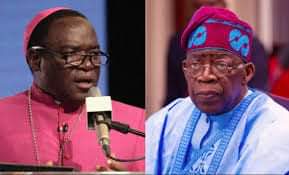You are deepening Nigeria’s poverty with wrong policies—Afenifere berates Tinunbu on first year anniversary
The Pan-Yoruba group – Afenifere – has accused President Bola Tinubu of exacerbating the economic hardship of Nigerians with his bad policy reforms.
The group catalogued Tinubu’s alleged failure in an 11-paragraph memo signed by its Publicity Secretary, Justice Faloye.
It said: The Nigerian economy has faced severe challenges during President Bola Tinubu’s first year in office, exacerbating the poor economic legacy left by former President Muhammadu Buhari.
Afenifere calls for a better understanding of the economy to address the alarming rates of inflation, Naira devaluation, unemployment, homelessness, and poverty. Key concerns are outlined below:
1. Subsidy Removals and Tax Increases: The belief that removing subsidies and increasing taxes will stimulate economic growth is flawed. Former British Prime Minister Winston Churchill once said, “for a nation to try to tax itself into prosperity is like a man standing in a bucket and trying to lift himself up by the handle.” Prosperous nations stimulate their economies with subsidies in energy, agriculture, and transportation. The current policy of subsidy removal and tax increases is contracting the economy, with companies folding due to skyrocketing fuel and electricity costs, leading to inflation and declining real incomes.
2. Interest Rate Hikes: The Tinubu administration’s reliance on monetary policy has resulted in raising the Monetary Policy Rate to 26.25% from 18.5% a year earlier, and the Cash Reserve Ratio to 45% from 32.5%. These policies are crowding out productive sectors from accessing loans. The hikes in interest rates are ineffective in curbing inflation because the withheld loans flow to a government that spends recklessly, pumping the funds back into the markets.
3. Energy Costs: Energy is crucial to the economy, and most nations subsidize it. Removing fuel subsidies when the global average for fuel subsidies to GDP is 7.1%, compared to Nigeria’s 2%, is illogical. The ratio of all subsidies to government expenditure for over 200 million people is about 25%, which is half the cost of governance enjoyed by just 1% of the population.
4. Local Refining and Electricity: The government’s failure to enable local refineries for petrol production and gas for thermal plants should have been addressed with emergency measures. Instead of subsidizing electricity generation and distribution, the government increased electricity costs without significant new investment, thus profiteering on existing stock without boosting productive capacity. High energy costs hinder productivity and employment.
5. Naira Devaluation: Floating the Naira without regulating market speculators and hoarders, in a nation with 90% of its foreign exchange derived from oil and gas, has led to massive devaluation. Government funding should stimulate the economy, not just fund the excessive cost of governance.
6. Foreign Exchange Market Stability: Stability in the foreign exchange market is crucial for domestic price stability and investor confidence. Current policies have led to capital flight, with existing investors not making additional investments and new ones hesitant to enter the market.
No more subsidy on electricity
7. Import and Debt Misconceptions: Nigeria’s import bill is only 16% of GDP, and its debt-to-GDP ratio of 39.8% is below the global acceptable rate of 60%. The main issue is not exporting enough due to theft of crude oil and poor governance. The government’s wastefulness cannot justify punishing the populace with increased taxes.
8. Proper Accounting and Security: The government must ensure accurate accounting of mined resources and strengthen security to protect economic production facilities. Multi-level policing is necessary to secure lives and property, enabling meaningful economic activities.
9. Taxation Policies: The focus on increasing the tax-to-GDP ratio from 6.7% to 18% is misguided. The informal sector, which provides 90% of employment and 60% of income, will suffer from increased taxes without corresponding government social benefits. The current taxation mindset disproportionately affects the poor.Q
10. Long-term Economic Vision: The administration lacks a vision for long-term economic growth that could provide high-paying jobs. Investing in infrastructure, such as railways, would have significant multiplier effects on the economy, unlike the current emphasis on expensive projects like the Lagos-Calabar Coastal Highway.
11. Short-term Revenue Solutions: The government must address low revenue by ensuring accountability of oil revenues and investigating the utilization of foreign debts, which rose significantly under the APC with no substantial infrastructure improvement.
At the end of Tinubu’s first year, the question remains whether the continued economic stagnation is due to corruption or incompetence. From failing to mine and refine crude oil to unjustified loans and high governance costs, the people bear the consequences. This “monkey work, baboon chop” economic policy must end to prevent further damage to Nigeria’s sociopolitical fabric.





